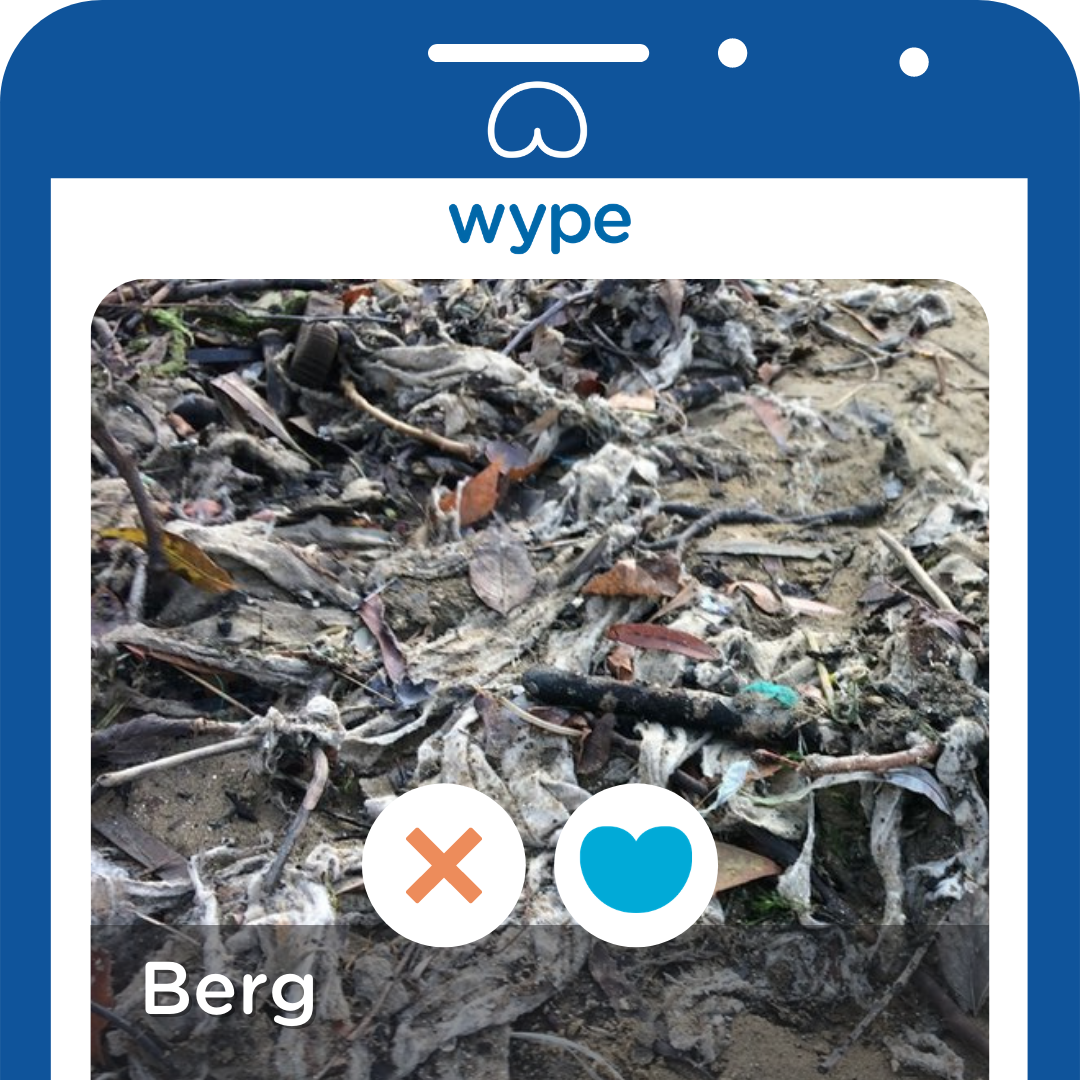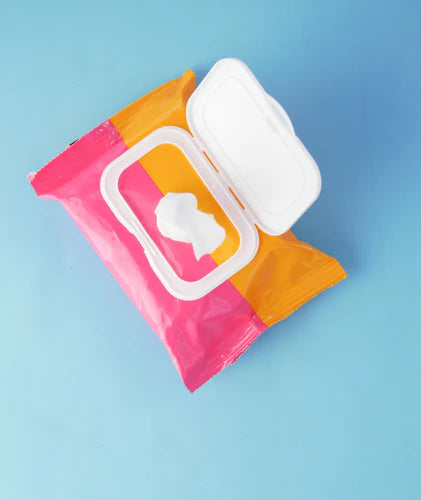sWIPE Left!

sWIPE Left!
Wet wipes: cheap, convenient and effective. But, with their long standing detrimental impact to the environment, are they really worth it? Wet wipes pollute our environment, damage sewer systems and as a result, end up being costly for the UK taxpayer. According to City To Sea, there are around 300,000 sewer blockages caused each year by wet wipes.
Why do wet wipes not break down?
Believe it or not, around 90% of wet wipes contain some type of plastic. In order to create a soft yet durable texture, polyethylene terephthalate (PET) or polypropylene (PP) and cotton are woven together with plastic resins. Unfortunately, as plastic can never fully biodegrade, it breaks down into smaller and smaller pieces – releasing hundreds of thousands of microplastics into the environment. This has to stop.

You might be thinking where these wet wipes end up if they aren’t caught up in sewers? You’ve probably guessed right… our beaches and oceans! To prove we’re not chatting sh!t, at last year’s Great British Beach Clean, Marine Conservation Society volunteers found an average of 18 wet wipes per 100m of coastline. This makes wet wipes the third most common litter item on UK beaches in 2020!

Fatbergs: fact or fiction?
FACT! Fatbergs are enormous congealed lumps of non-biodegradable solids such as grease, oil and wet wipes which have entered sewers from the waterways via sinks or toilets.
In May, a gigantic 1,000m long fatberg was discovered in Birmingham. High-pressure water jets have been called in to remove the 300-tonne “horrible, gunky mess”. BBC news reported that if the jets don’t disperse the monster then workers will have to chip away at it with spades (insert sick emoji!). Read more about it here.
2021 seems to be the year in the UK where more and more fatbergs are being reported. In April, a fatberg was discovered underneath the streets of Plymouth. You may have been lucky enough to walk the streets of Paris and seen the Arc de Triomphe. It’s exquisite, right? Well just imagine a fatberg the size of that - 50 METERS! Due to its sheer size, it took more than a month for a team of contractors to remove 88 tonnes of debris. Do you know who paid for that? The UK taxpayer! According to South West Water, It cost nearly £100,000 to extract. Don’t believe us? Here’s the article.
You may be reading this on your lunch break so we thought you’d prefer to see a picturesque photo of Paris opposed to a sewer in Plymouth. You can thank us later.

Just kidding, you need to see it….

Don’t believe everything you read
“But I use ‘flushable’ wet wipes, so these are fine, right?”
NO, absolutely not! Despite many wet wipes being marketed as ‘flushable’ and ‘septic-safe’, these products still shouldn’t be flushed down the toilet. The so-called ‘flushable’ wet wipes may eventually break down, but take much longer to do so compared to regular toilet paper. Since the breakdown is much slower, clogged pipes and blockages occur more frequently.
The UK is finally seeing the light at the end of the sewer and launched a Fine to Flush campaign in the fight against the fatberg! Manufacturers of wipes will be able to feature an official water industry ‘Fine to Flush’ symbol on their packaging if they pass strict scientific tests. This symbol will let consumers know that the products will break down in the sewer system instead of clogging up sewers and contributing to fatbergs which cause blockages and sewage overflows. Just make sure that you only flush one at a time!
Find more about the Fine to Flush movement here.
Time to do your bit..
We get it, wet wipes are convenient and relatively cheap. Our aim for this article isn’t expecting the world to give up wet wipes. But we just wanted to do our bit to spread awareness of the harmful impact they have on the environment.
If you do love that wet wipe sensation and are looking for an eco-friendly and sustainable alternative, then hopefully we don’t need to give any more reasons to switch to Wype. Our Wype Gel is applied to regular toilet paper to create a wet wipe, giving you a bidet-clean feeling on the go.
Think twice before you flush.
#WypeUK #CleanUpDownThere #sWIPELeft



